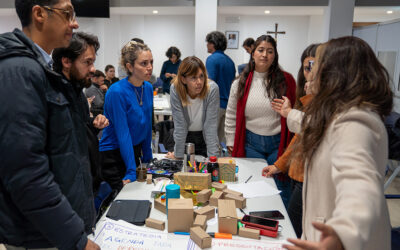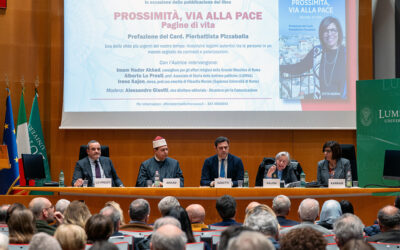
After having reviewed some points of the spirituality of unity in these past years (God-Love, the Will of God, the Word, love of neighbour), we are now looking into the “new commandment” of Jesus, “Just as I have loved you, you also should love one another” (Jn 13:34).
Chiara Lubich over the years understood more and more its importance and its novelty. She also saw it as the great expectation of our time.
We offer a brief writing on this topic taken from a talk given on October 24, 1978 and addressed to the delegates of the Focolare Movement:
«The Lord used a special technique to teach us how to love our neighbour, remaining in the world without being of the world. He immediately made us understand that it was possible for us to love our neighbour without falling into sentimentalism or other errors, because it was he himself loving in us, with his charity. …
Charity is a sharing in the divine agape (love). …
St. John tells us that God loved us, but he doesn’t then conclude – as would have been more logical – that if God has loved us, we ought to love him in return. Instead he says: “Beloved, if God so loved us, we also ought to love one another” (1 Jn 4:11).
It is only because charity is a participation in God’s love (agape), that we are able to go beyond natural limits and love our enemies and give our lives for our fellow human beings.
This is why Christian love rightly belongs to the new era, and the new commandment is radically new, and introduces something absolutely new into human history and human ethics.
“This love,” writes Augustine, “makes us new, so that we are new persons, heirs of the New Covenant, singers of a new song (cf. Io. Evang. tract. 65, 1; PL 34-35).”
_______________________________________
Taken from the Italian book: Chiara Lubich, L’amore reciproco (Mutual love), edited by Florence Gillet, Editrice Città Nuova, Roma 2013, pp. 38-39.




0 Comments